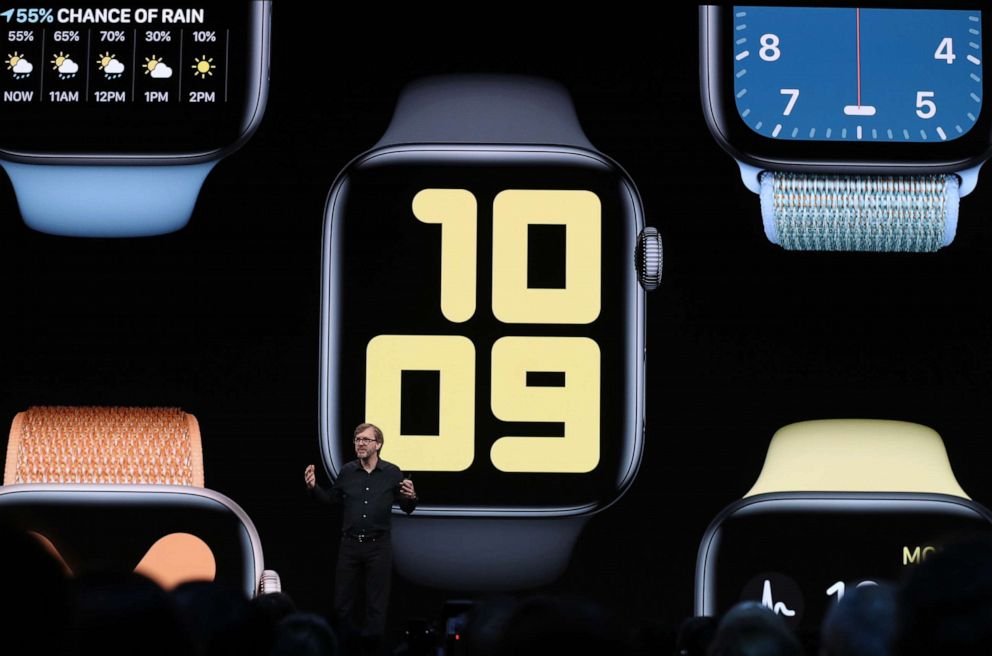Apple Watch OS 6 will feature a menstrual period tracker
The cycle tracker will also be available in the Health app on the iPhone.
New updates to the Apple Watch will include a menstrual cycle tracking feature, meeting a need users have long called for.
The Cycle Tracking feature is not only coming to the Apple Watch -- it will also be available in the Health app on iPhones when the newest operating system, iOS 13, becomes available.
The period tracker was announced at Apple's annual developer conference, WWDC, on Monday, along with a slew of other product updates.
Like many menstrual cycle trackers already available as separate apps, users will have to manually input daily information such as "current period, flow, symptoms, results from ovulation prediction kits and other elements of fertility tracking," according to the company.

Apple previously launched a "reproductive health" tracker as part of its Health app for the iPhone in 2015, after facing criticism for not including menstrual health in previous iterations of the device.
Apple's Cycle Tracking is not the first period tracker available on the Apple Watch. Cycle-focused apps like Clue and Natural Cycles have already launched Apple Watch versions.
Fitbit introduced "female health tracking" for its watch device last year.
Last summer, the FDA allowed the Natural Cycles app to market itself as a method of pregnancy contraception.
Tracking a menstrual cycle is not only important when it comes to questions of fertility or awareness about when a period may start. Hormone levels change throughout the menstrual cycle, and some have posited these fluctuations could lend themselves to different types of physical training at the different stages of the cycle, which could be relevant to Apple Watch users focused on fitness.
Recent studies on this, however, are inconclusive.




